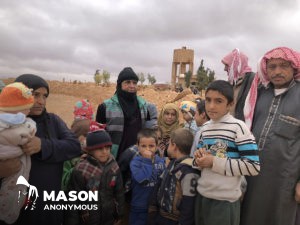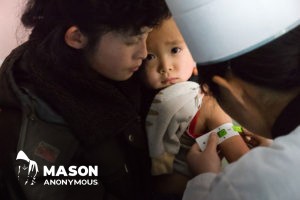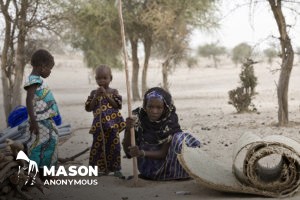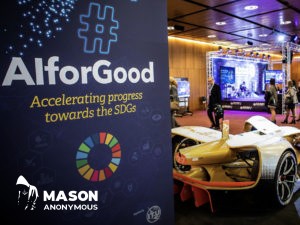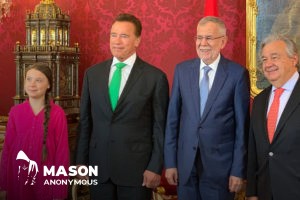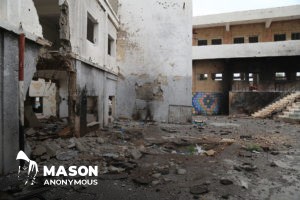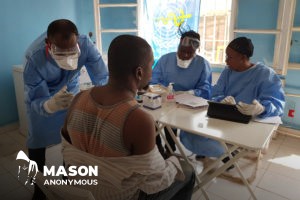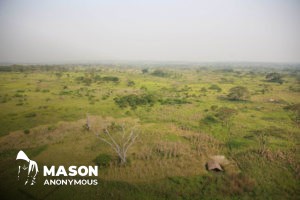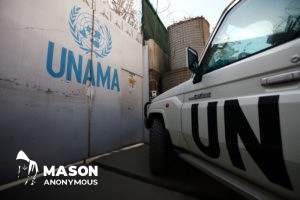“You all know the statistics of this conflict”, Ursula Mueller told the chamber. “You know that more than half the Syrian population has either fled the country or faced repeated internal displacement…and you know that currently, an estimated three million people in Idlib are caught up in the crossfire, with some living under trees or plastic sheeting on bare patches of land”.
There are no safe schools or clinics, she said, and no way to earn a living, while families live in “the constant fear” of sending their children to a school that may be bombed “later that day”.
Despite a temporary ceasefire announcement on 17 May, fighting in the last rebel stronghold of Idlib in Syria’s north-west, has continued over recent days, with heavy shelling and aerial bombardment this month leaving more than 160 civilians dead and some 270,000 others displaced.
The deputy relief chief quoted the Office of the High Commissioner for Human Rights, in saying that “both pro-Government forces and non-State armed groups fighting in northern Syria appear to have failed to respect the principles of distinction and proportionality under international humanitarian law”.
She told the Council that since 28 April, the World Health Organization (WHO) had reported a total of 25 attacks targeting medical infrastructure in northwestern Syria, including 22 health facilities, with some having been hit more than once. Moreover, some 25 schools are reported to have also been impacted by the violence, as well as marketplaces and at least three sites for displaced people.
While the humanitarian community is responding in accordance with its contingency and readiness plans, “despite our best efforts, the response is stretched”, she explained.
“Many of our humanitarian partners are part of the affected population and have themselves been displaced”, she said, adding that as a result, “in many areas of active hostilities, humanitarian operations have been suspended”, including health, nutrition and protection services that previously supported some 600,000 people.
Pointing out that this year marks the 70th anniversary of the Geneva Conventions and the 20th anniversary of the Council’s adoption of protection of civilians as an agenda item, she recalled the Secretary-General’s word’s last week, saying that “respect today for international humanitarian law is, at best, questionable.
“You are all, as Member States, aware that all parties to armed conflict are legally bound to comply with international humanitarian law…Sparing hospitals and schools is not optional. It is a fundamental legal obligation”.
Other crisis areas
While calling the fighting in Idlib “the most distressing front in the conflict at present”, she painted a picture of “deteriorating conditions inside Rukban” camp for internally displaced, on the southern border with Jordan, that during the past two months, have caused more than 13,100 to flee.
For those who remain, food, basic medicines and other life-saving supplies delivered in February have run out. Fuel is scarce; prices are skyrocketing; and “people are exhausted”, she spelled out.
Ms. Mueller said a third humanitarian convoy to Rukban was urgently needed “to avoid further suffering” for the 29,000 people who remain, strongly urging the Syrian authorities “to reverse their refusal and facilitate access…as first requested in March and again on 9 May…to provide support to this vulnerable population”.
Turning to the continuing plight of some 74,000 civilians – 92 per cent of whom are women and children – at the Al Hol refugee camp in the country’s north east, near the Iraqi border, she said that “most have been exposed to extreme violence and trauma under ISIL”.
“They are now living in extremely difficult conditions where they face a range of protection challenges, and an uncertain and disconcerting fate”, she said, including being denied repatriation, rehabilitation, re-integration, a fair trial, or even of becoming Stateless.
“All children, including those suspected of being associated with armed groups and/or designated terrorist organizations, are entitled to special care and protection under international humanitarian law and international human rights law, including the Convention on the Rights of the Child” Ms. Mueller stated, adding “these children must be treated first and foremost as victims”.
